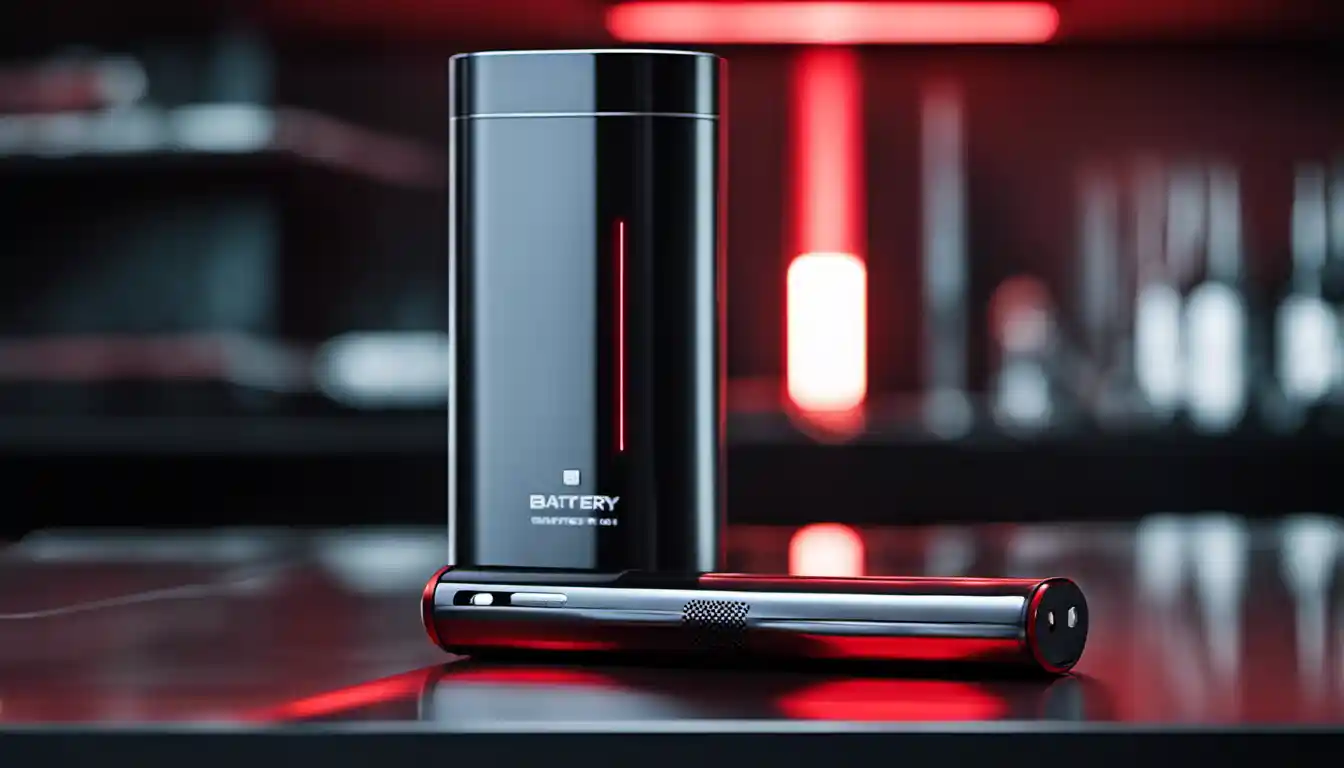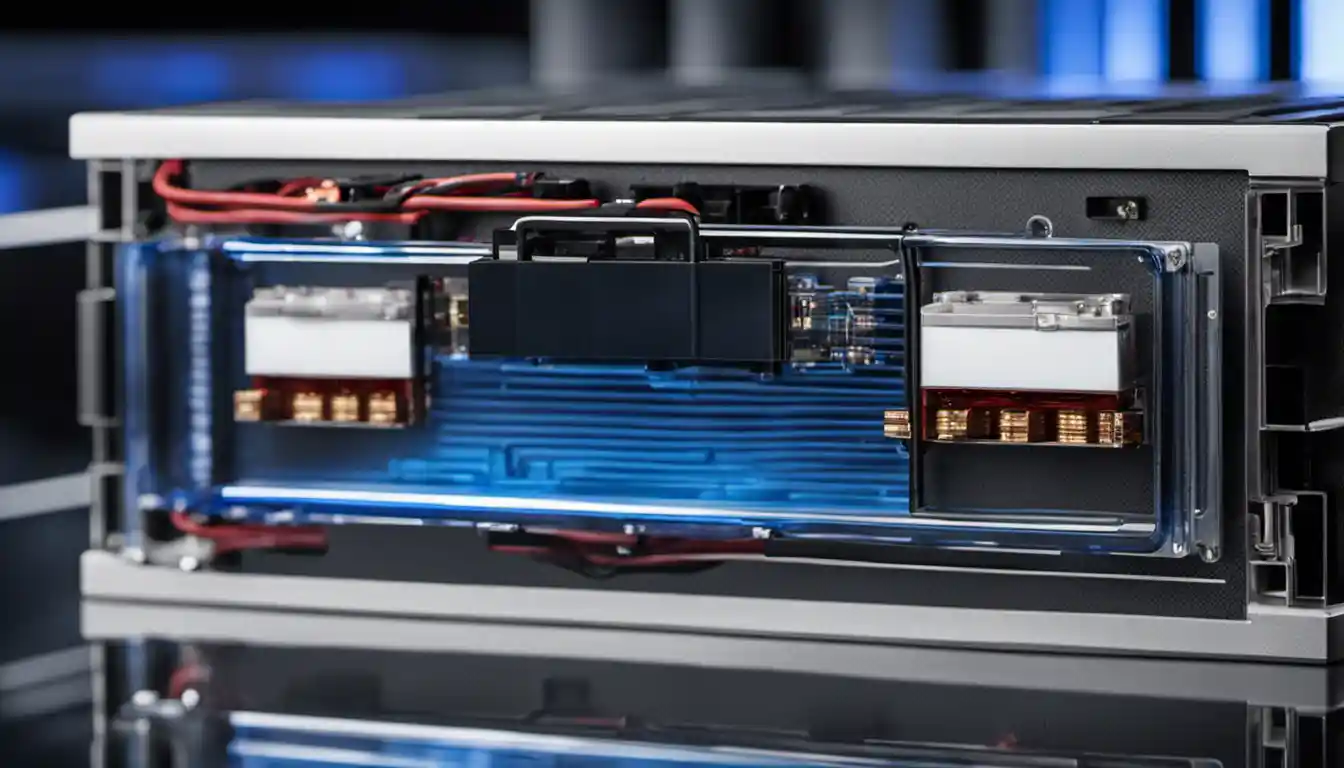Understanding Solar Battery Over-Discharge
To fix a solar battery over discharge, you’ll first need to identify the root cause. This could be due to improper battery maintenance, faulty fittings, or imbalanced loads. It’s recommended to engage a professional or refer to your battery manual guide for the proper steps to troubleshoot the issue and possibly recalibrating your solar battery system to ensure it doesn’t over discharge in the future.
What is Solar Battery Over-Discharge?
Picture this – a bright sunny afternoon and your solar panels are dutifully absorbing the radiant energy. At the heart of this process is your reliable solar battery, storing all that valuable sunlight as energy. But what happens if you crack open this chest of solar treasure only to find it empty? This is what we refer to as solar battery over-discharge. It’s when a battery’s charge is allowed to run too low or completely drain, often a result of using more energy than the solar panel is producing, leaving you with an empty battery and a power deficit.
Causes of Solar Battery Over-Discharge
Charge Controller Issues
Now, how do you end up with a case of the over-discharged battery? Did you know that an errant charge controller could be the main culprit? The charge controller is that oft-overlooked superhero regulating the current from solar panels to your battery bank. But flawed programming or malfunctioning may cause it to incorrectly manage power distribution, leading to over-discharge.
Increased Load
Another cause might be due to the increased load on your solar-powered systems. With more people working from home today, you’re likely using more energy from your solar systems. Too many Zoom calls or Netflix marathons can inadvertently task your battery beyond its capability!
Defective Charge Controller or Inverter
Moreover, defects in associated equipment like your charge controller or inverter may also contribute to this issue. When these components fail or develop faults, incorrect signals can be sent to the solar battery causing it to discharge rapidly.
Poor Battery Maintenance
Finally, poor battery maintenance practices can also damage your solar battery, leading to over-discharge. Neglecting to clean your battery terminals, not topping off fluid levels, and disregarding temperature requirements are some of the common maintenance missteps that can contribute to over-discharging.
How to Detect Battery Over-Discharge

Now that we have covered some common causes let’s talk about how to detect this power predicament.
Identifying Common Symptoms of Over-Discharge
Symptoms of an over-discharged battery can range from reduced battery lifespan and weaker performance to early battery failure. If your solar energy system suddenly seems to be producing less energy than before, or not lasting as long into the night, you might be dealing with an over-discharged battery.
Evaluating Battery Low Voltage Indicators
Remember our good friend, the charge controller? It typically provides a low-voltage disconnect (LVD) function, indicating the status of the battery. Observing these controllers can help identify an over-discharge. A lower than normal reading may suggest your battery has been over-discharged.
Correcting Solar Battery Over-Discharge
Identifying the problem is half the battle won. Now, let’s explore how to fix solar battery over discharge.
Understanding the Problem: Can a Solar Panel Discharge a Battery?
Here’s a surprising fact: Yes, a solar panel can discharge a battery, particularly at night or cloudy days when the panel isn’t producing power. If a blocking diode is not present, power can flow in reverse from the battery back into the panel, resulting in a loss of stored power.
Steps to Fix Over-Discharged Solar Batteries
-
Restart System: In some cases, performing a total system restart may recalibrate your system and correct the issue.
-
Conduct Inspections: Regularly checking solar system components can help identify any problems earlier.
-
Check Battery Connections: Loose or corroded connections can cause improper charging or increased resistance.
-
Recalibrate Charge Controller: Periodic recalibration helps ensure that your battery is not being prematurely disconnected or allowed to over-discharge.
-
Seek Professional Assistance: If all else fails, call in the pros. Everything from damaged panels to flawed electronics could be causing the issue, and a professional technician will be able to identify and fix the problem.
Treating the Solar Battery After Over-Discharge
Post-fix, it’s essential to nourish your battery back to health. Stringent following up on maintenance procedures, keeping your battery at the recommended levels, and ensuring the correct set-up can prevent recurring over-discharge.
Replacing Solar Battery Diodes to Correct Over-Discharge
You might also need to replace the diodes in your solar panel to stop them from discharging your battery. Your local solar technician can help with this, or if you’re a DIY enthusiast, there are numerous guides online that can walk you through the process.
Preventing Future Solar Battery Over-Discharge

Calling a technician may solve the problem at hand, but it’s imperative to take preventive steps to avoid similar situations in the future.
Importance of Maintaining a Solar Battery
Regular check-ups and maintenance might appear bothersome, but they are vital for ensuring the long and productive life of your solar battery. Familiarize yourself with your battery’s routine maintenance tasks to maintain it in top working order and prevent over-discharging.
Best Practices for Solar Battery Maintenance
Preventing over-discharge and ensuring a long battery life involves taking care of things like:
-
Regular cleaning of battery terminals.
-
Ensuring the battery is topped off with distilled water.
-
Checking the battery health regularly.
-
Monitoring the temperature range.
These steps will help keep your battery in peak working order and can help you avoid the unfortunate event of an over-discharged battery. To learn more about promoting a longer life for your solar battery, don’t miss our comprehensive guide on how long does a solar battery last.
The Role of Charge Controller in Preventing Over-Discharge
A charge controller is not just a device to control the amount of charge going into the battery, but it also helps in regulating the power output to prevent overloads and over-discharging. Ensuring your charge controller is working correctly and updated is a significant factor in preventing future over-discharges.
Tips to Make a Solar Battery Last Longer
Next up on our to-do list: making sure we extend our solar battery’s lifespan. Steer away from cheap, low-quality batteries; they might save you a few bucks today but will dig a deeper hole in your wallet over time with constant replacements and issues. Opt for high-quality batteries known for their longevity and efficiency. Also, remember the old saying, “prevention is better than cure”? Regularly monitor your system’s energy consumption.
Factors Influencing Solar Battery Performance
Solar battery performance depends on numerous factors: from the weather to the components you use, everything plays a role.
Weather Factors Impacting Solar Battery
Contrary to what you may think, sweltering heat is not ideal for your solar battery. While the panels revel in the abundance of sunlight, batteries prefer a cooler ambient temperature. Extreme weather fluctuations may result in decreased battery efficiency.
Impact of Temperature on Solar Battery Performance

Maintaining your battery at the manufacturer recommended temperature helps optimize its performance. Excessive cold can dramatically slow down chemical reactions inside the battery, leading to a reduced capacity to store and deliver energy, while excessive heat can accelerate the chemical reactions, leading to premature aging of the battery.
Effects of Extreme Weather Condition
The impacts of weather extremes can affect your solar battery’s performance and lifespan, from hot climates causing overheating issues to extreme winter weather, possibly leading your battery to freeze.
Understanding the Impact of Sulfation on Solar Batteries
Sulfation is a common issue with lead-acid batteries where lead sulfate crystals form on the battery plates, reducing the battery’s capacity. It often occurs when a battery is left idle in a discharged state for an extended period.
Emerging Technology for Solar Battery Maintenance
Latest Technologies for Avoiding Over-Discharge in 2023
The solar industry constantly evolves and 2023 promises several advances that could aid in avoiding battery over-discharge. These include more efficient charge controllers, smart monitoring systems, and even advanced AI that could anticipate performance issues before they happen.
How New Technology Can Aid in Battery Maintenance
AI technology and IoT connected devices can lead to smarter, more effective battery maintenance. These advancements could alert you to potential issues and prompt preventive actions before a major problem occurs.
Conclusion: Safeguarding Solar Battery Health-long term
Your solar battery will sway to the rhythm of regular maintenance, precision in choosing quality components, and embracing new technology to maintain battery health. Remember that taking care of your solar battery is not just about dealing with issues as they occur; it’s about avoiding those issues in the first place.
Frequently Asked Questions
-
Are charge controller issues the sole cause of over-discharge?
No, several factors can cause over-discharge, including increased load, faulty equipment, and poor battery maintenance.
-
What are the tell-tale signs of an over-discharged battery?
Decreased battery lifespan, weaker system performance, and early battery failure are some of the common symptoms.
-
Is there a way to prevent future over-discharge of my solar battery?
Yes, regular battery maintenance, right set-up, and usage can definitely prevent future over-discharge.
-
How can I optimize temperature for better battery performance?
Try to maintain your battery at the manufacturer recommended temperature, and protect it from extreme weather conditions.
-
What steps do I take to rectify an over-discharged solar battery?
Restart your system, conduct regular inspections, check all connections, recalibrate your charge controller, and if none of these work, it may be time to call a professional solar technician.
With the knowledge of ‘how to fix solar battery over discharge,’ you’re now primed to not only effectively manage an over-discharged battery but also prevent this from happening in the future. Remember: maintenance, vigilance, and quality are your solar battery’s best friends.



